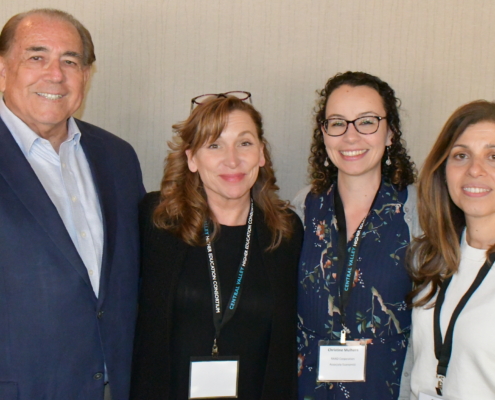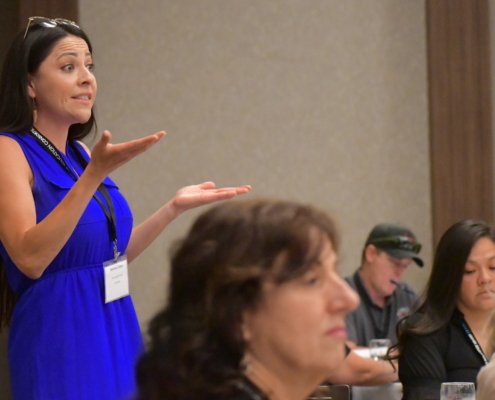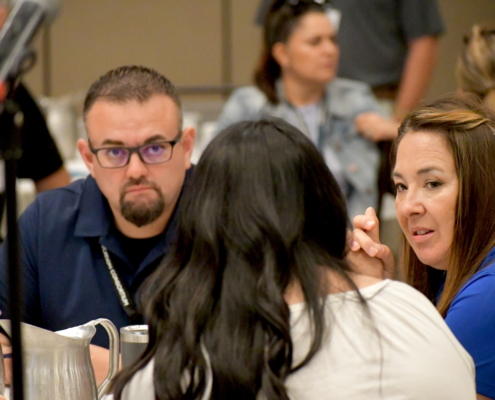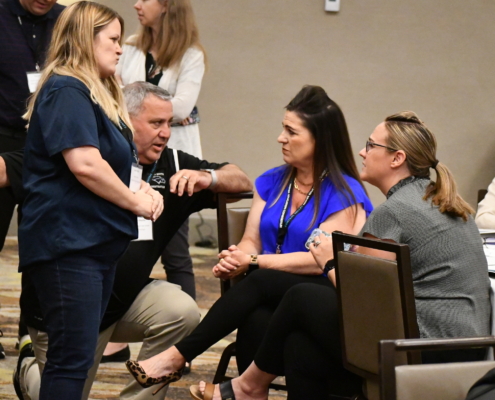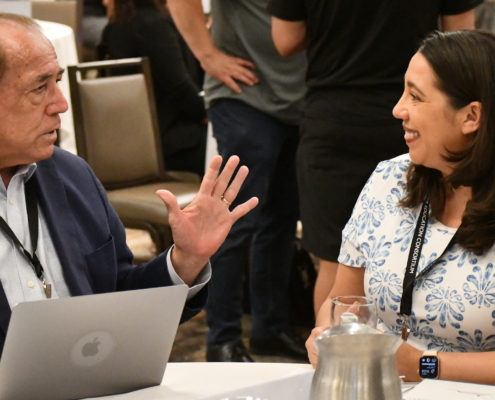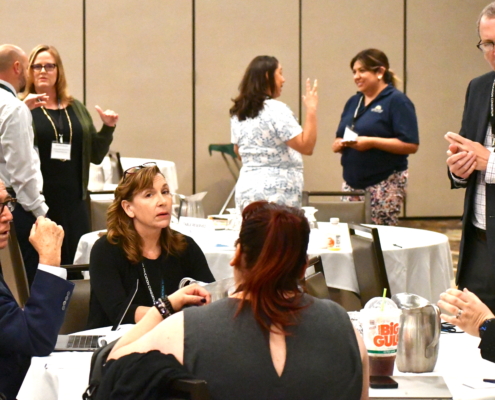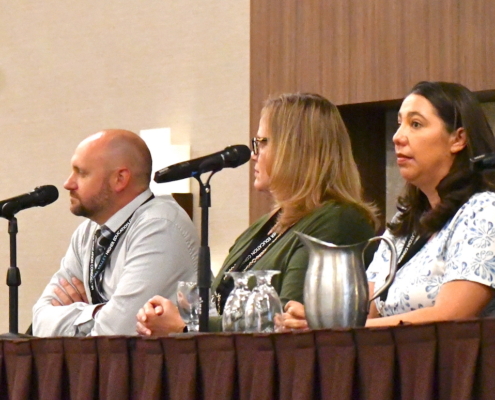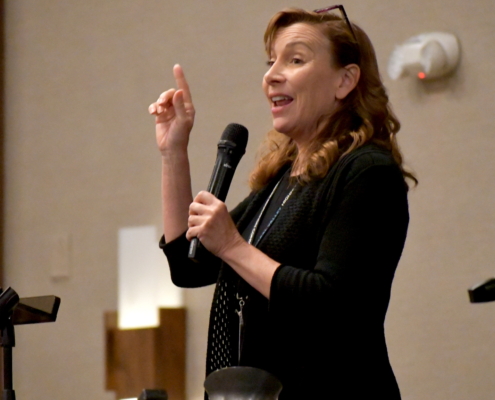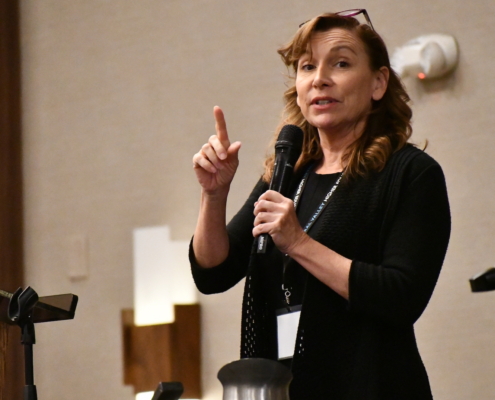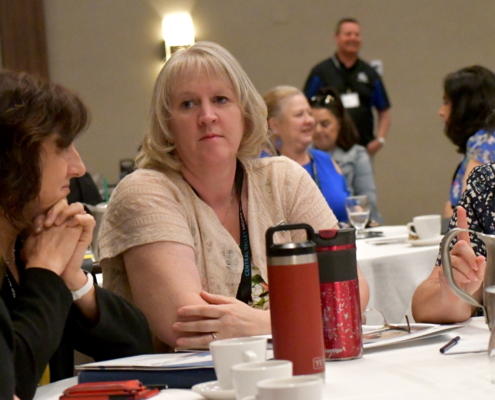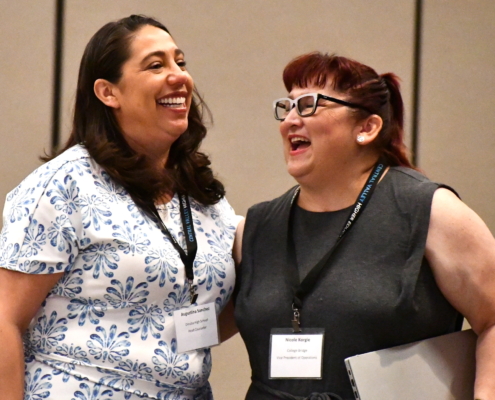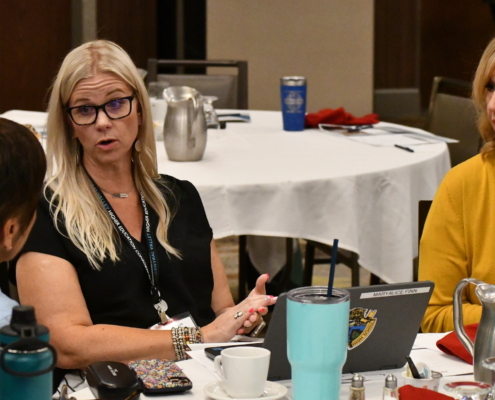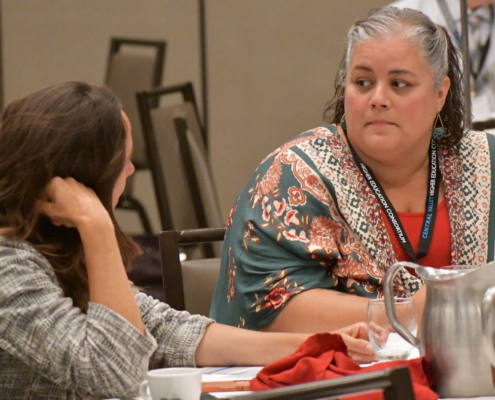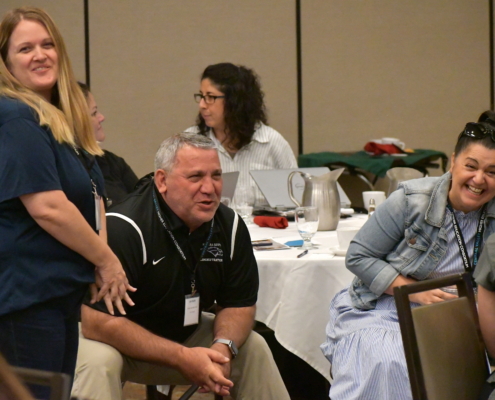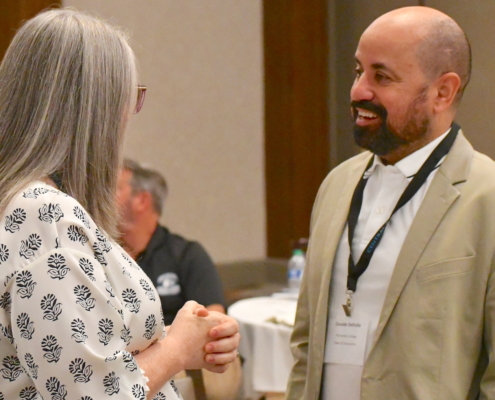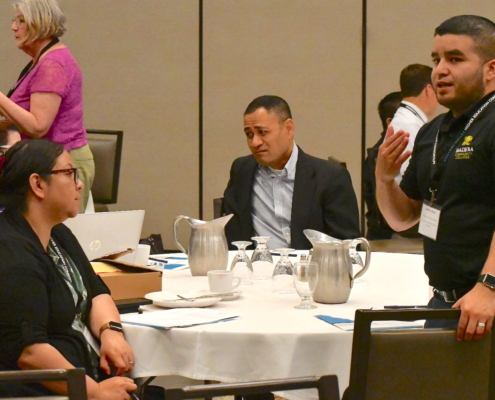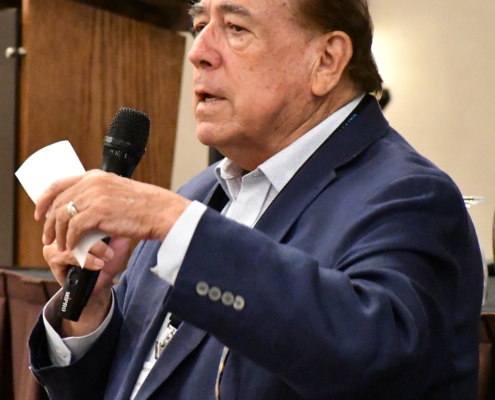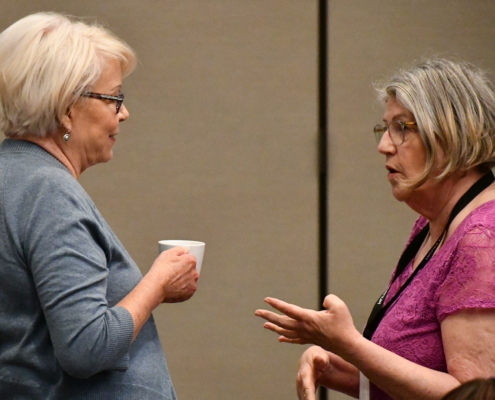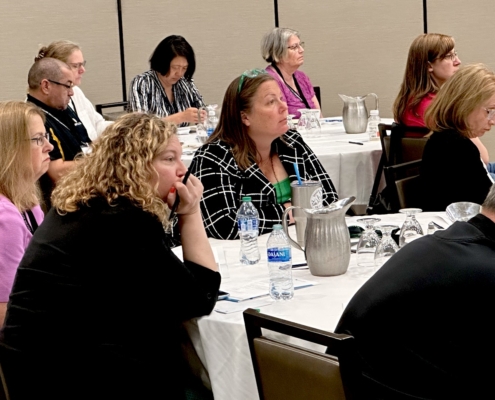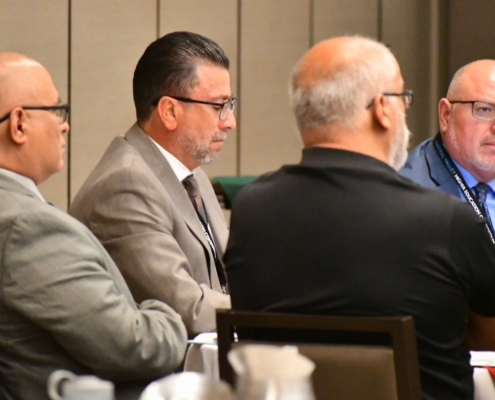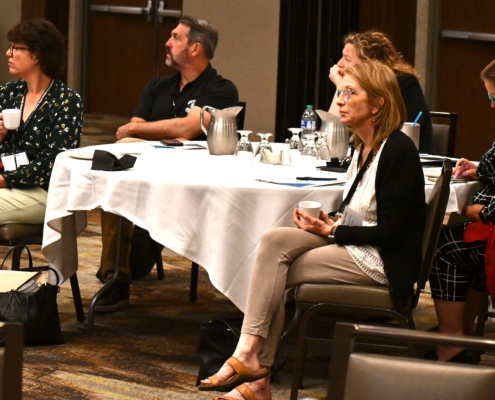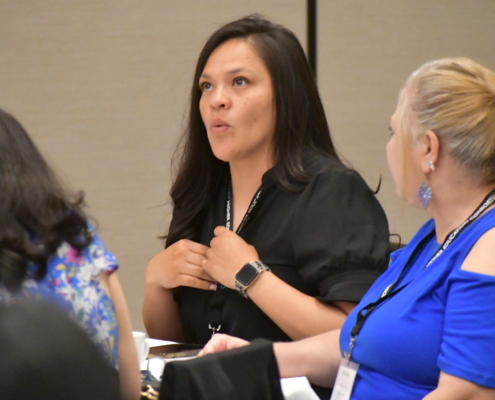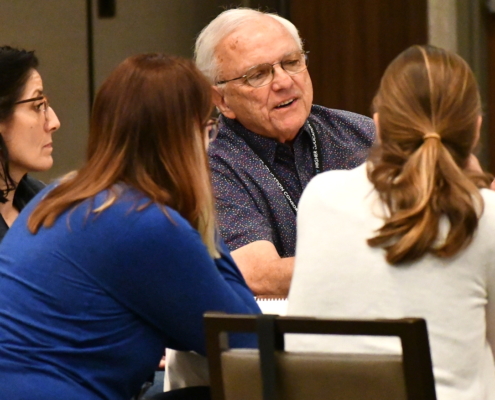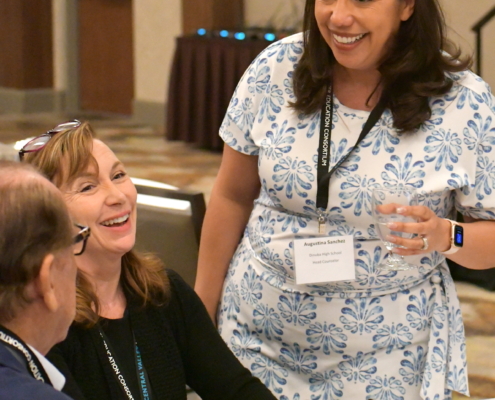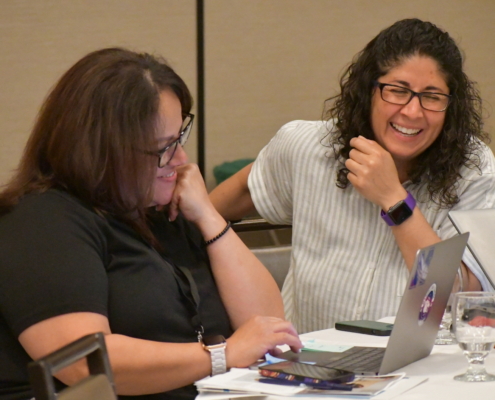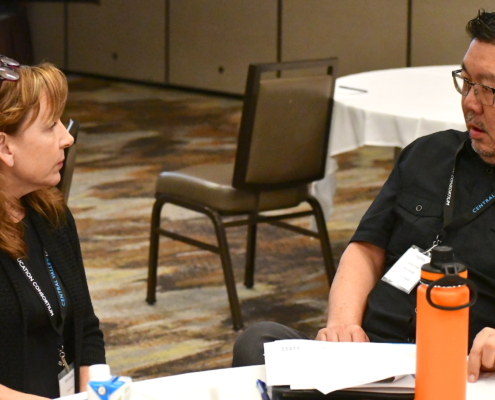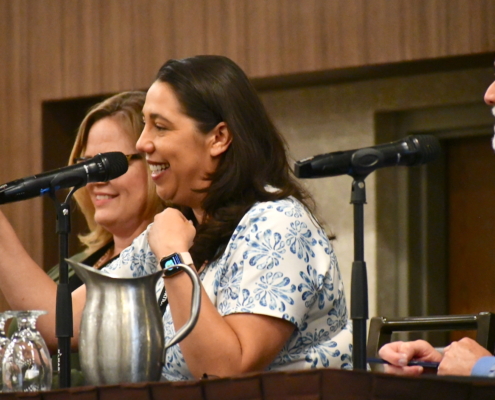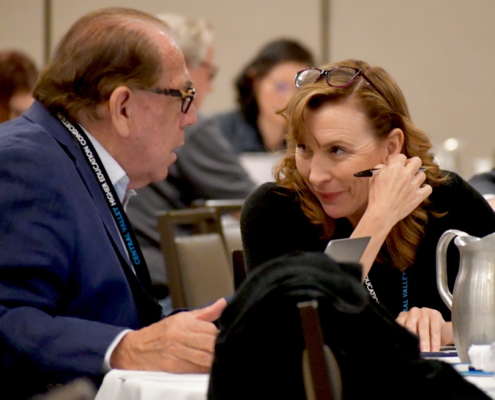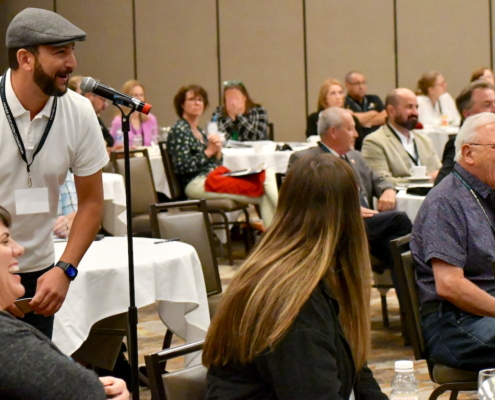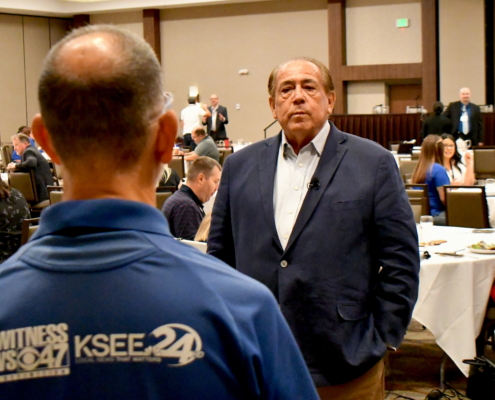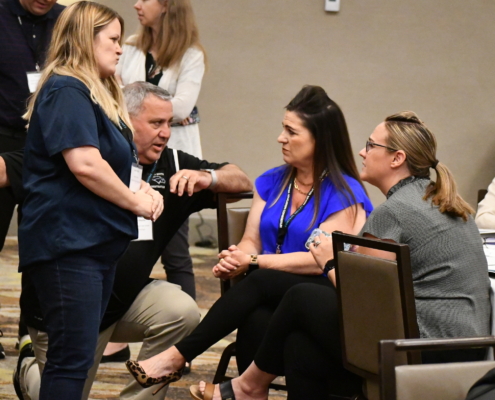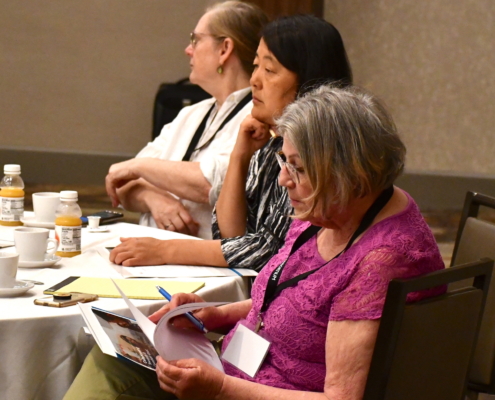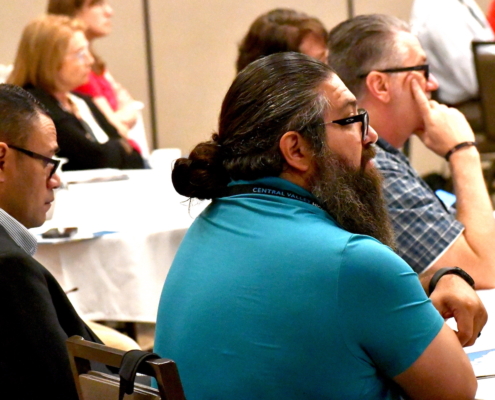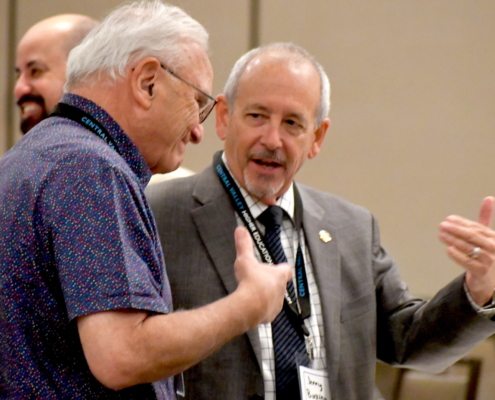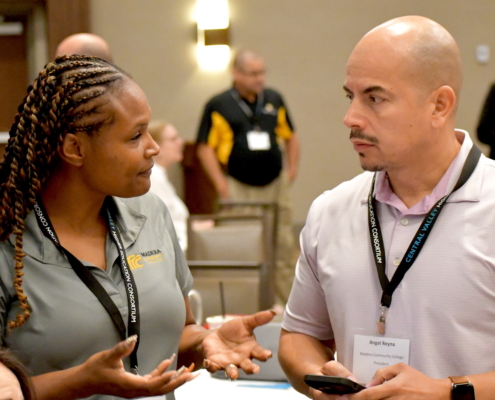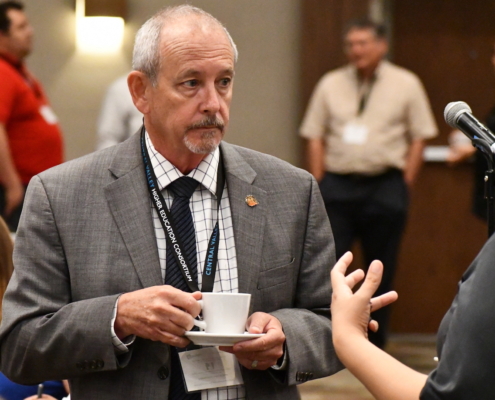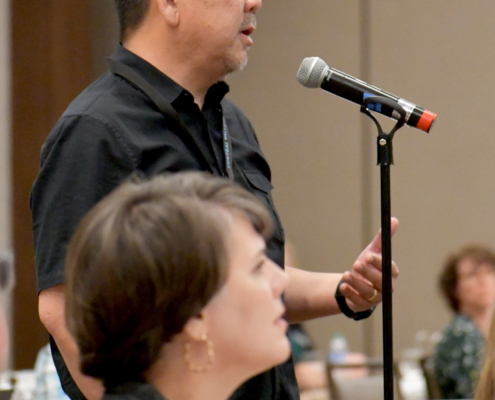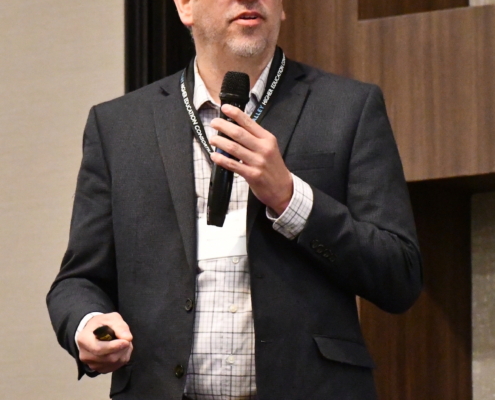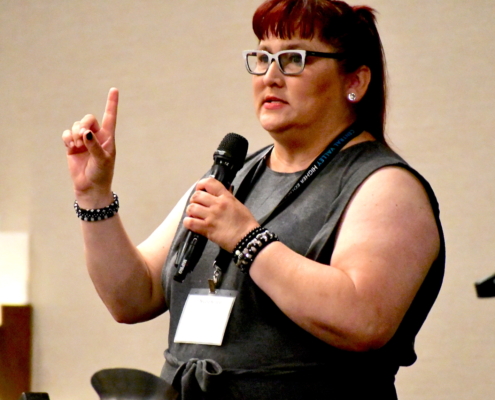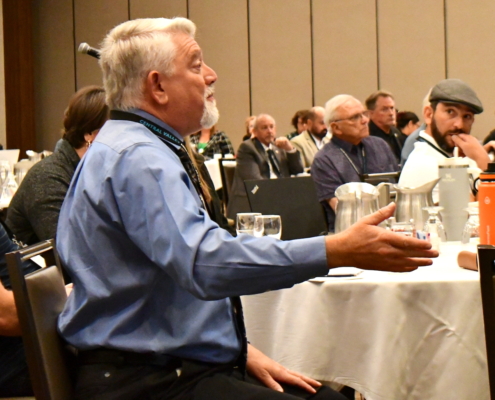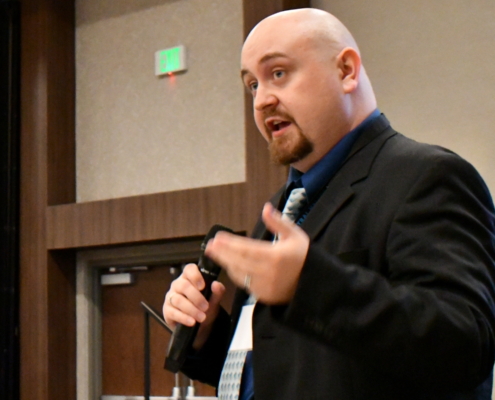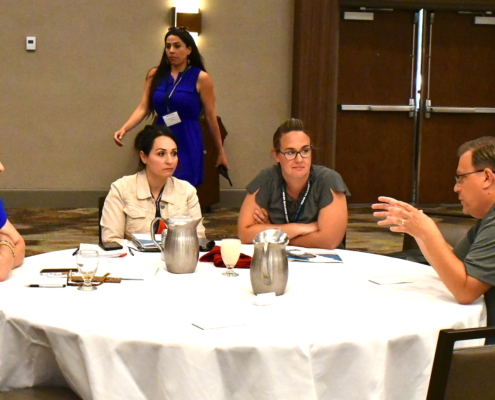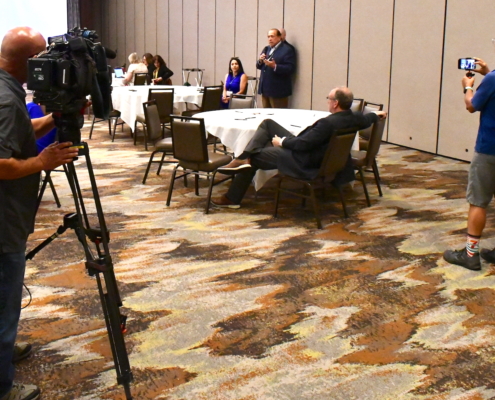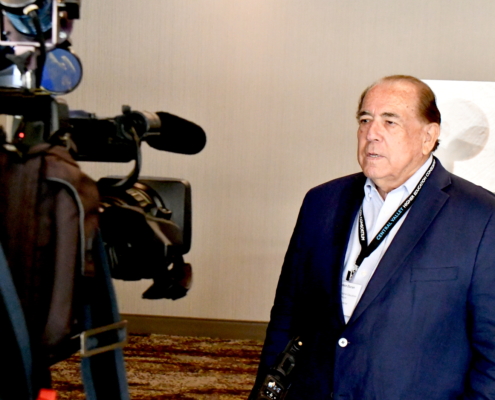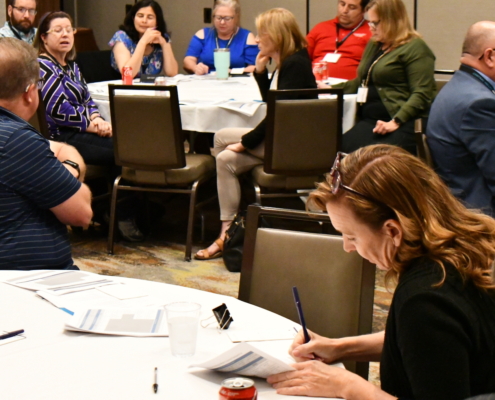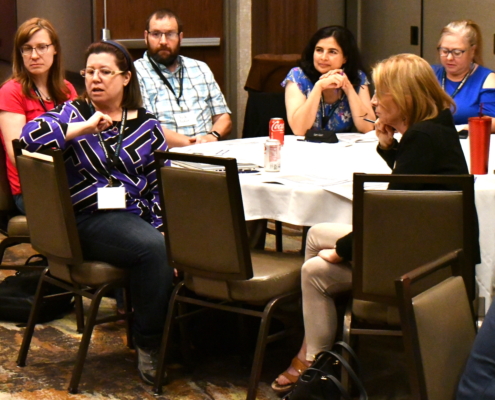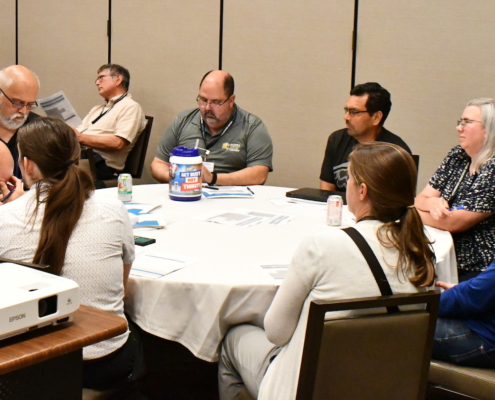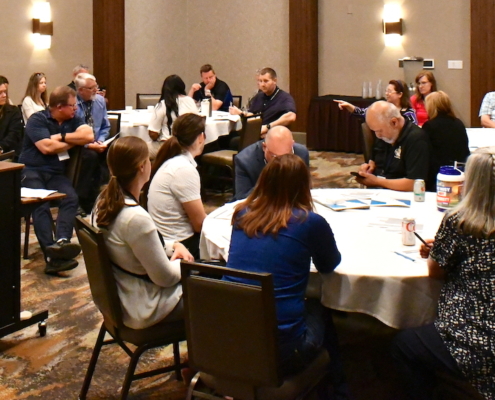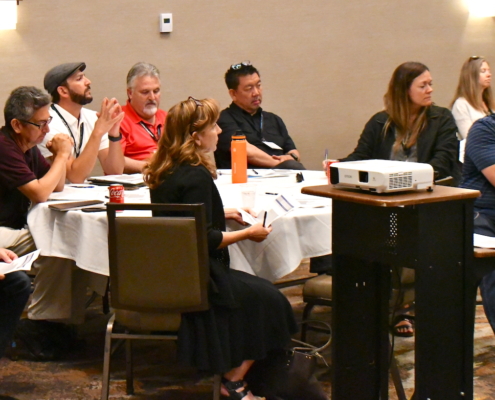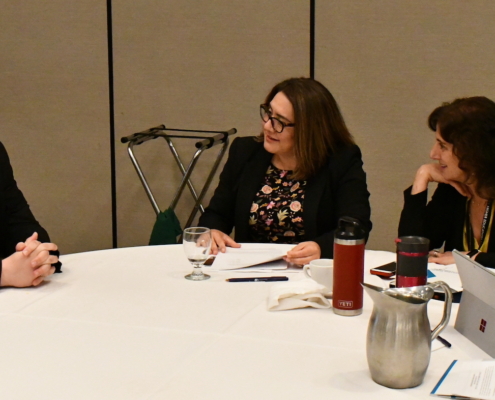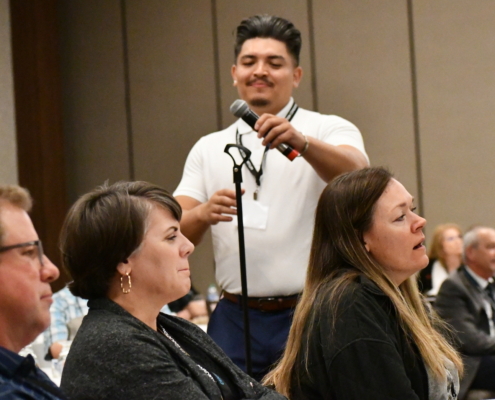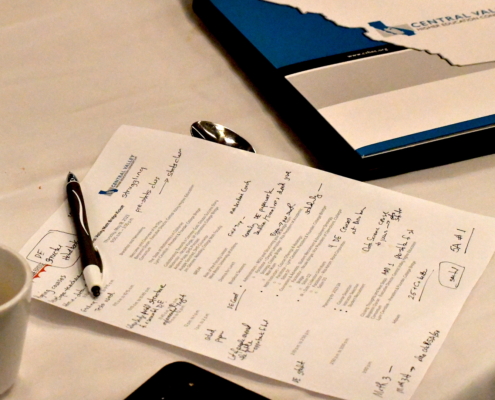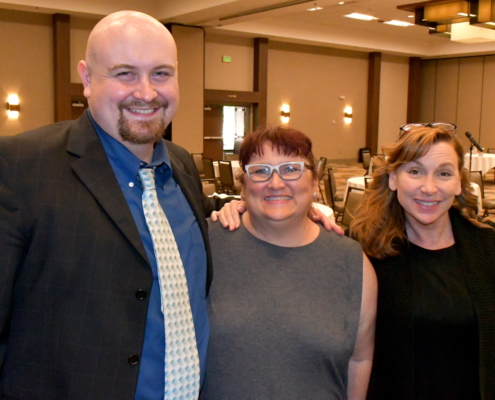Representatives of the first cohort of 13 Valley high schools in the new Central Valley Math Bridge Program convened with nine community college members of the Central Valley Higher Education Consortium May 18 in Fresno to formally launch the program and plan for its implementation.
The event, presented by co-hosts College Bridge, Central Valley Higher Education Consortium and the Rand Corporation, drew 95 participants to kickoff the project that promotes equity and college-readiness in mathematics via dual enrollment courses for underprepared students at rural high schools in the region next fall. (See list of high schools below).
In a stirring keynote, “The State of Mathematics in California,” Dr. Lynn Cevallos, founder and president of College Bridge, presented the dire reality of academic disjuncture which has culminated in a pending crisis that could see “the doors to STEM careers closing for our students.
“Fortunately, the Math Bridge project is designed to keep those pathways open,” she said.
In the morning session following the keynote, “Collaborating Towards a Common Goal: Dinuba Success Story,” attendees heard first-hand accounts of how the project’s implementation can yield success from an exuberant team at Dinuba High School and Reedley College who had participated in a previous College Bridge program — the Math Pipeline Readiness Project (M-PReP) — that provided the foundation for the current project.
“It seems like a lot of work to start, and it is, but coming together and planning with everyone is an awesome process,” recounted Augustina Sanchez, Dinuba High School counselor who also wrote about the experience in a “What Is the CV-hec Happening” blog in February. “And it works, [College Bridge] really is there with you every step of the way.”
Presenting with Sanchez were DHS Principal Andrew Popp; Christine Johnson, secondary math coach, Dinuba Unified School District; and Jim Gilmore, Math professor at Reedley College which was the DHS community college partner.
In afternoon breakout sessions, math instructors across the valley responded to the warnings from Dr. Cevallos’ keynote by diving right into the work of collaborating across their respective sectors.
“In a moment of amazing partnership, instructors jointly set the focus their work as whole content teams, regardless of college or high school,” Dr. Cevallos noted.
“It’s an amazing idea to have everyone from all of these colleges and high schools to want and decide to work together as huge content teams. That’s a lot of very smart and very dedicated educators coming together for the benefit of all their students.”
Dr. Benjamín Durán, CVHEC executive director, delivered closing remarks.
“The DE Math Bridge Project will prepare and guide students as they transition to college or university equipped with math credits and confidence,” said Durán, president-emeritus of Merced College who became CVHEC’s executive director in 2016. “It creates a model for meaningful dual enrollment pathways and expansion that can be replicated in other regions of California serving underprepared students. This also supports CVHEC’s mission to increase degree attainment rates.”
The Central Valley Math Bridge project was initially funded by a $4 million five-year Education Innovation and Research (EIR) Program federal grant awarded by the U.S. Department of Education to College Bridge in late December.
College Bridge recently completed an extensive four-month recruitment campaign to secure eligible high schools for the first of two cohorts. Recruitment of the second cohort will begin this summer, Cevallos said.
The first cohort of high schools to-date and their respective community college partners are (with three additional pending*):
Cerro Coso College: Lone Pine, Tehachapi;
Columbia College: Bret Harte*, Calaveras*;
Madera College: Liberty, Madera, Madera South, Matilda Torres, Yosemite;
Reedley College: Dinuba, Orosi, Parlier, Reedley*
Taft College: Taft High School
West Hills Coalinga College: Firebaugh, Tranquillity.
High schools and community colleges interested in participating in the second cohort may contact Nicole Korgie at nicole.korgie@college-bridge.org.
Media inquiries: Tom Uribes at 559.348.3278.
NOTE: A parallel project funded by the state in February through the Central San Joaquin K-16 Partnership — made up of the Fresno/Madera and the Tulare/Kings K-16 Collaboratives — will serve an additional two colleges and seven high schools in the region (see https://bit.ly/CVHEC-DualEnrollmentMathBridge).
See background stories
https://bit.ly/CB-DualEnrollmentMathBridgeAnnounced
https://bit.ly/MathBridgeDualEnrollmentKickoff
ABOUT CVHEC and COLLEGE BRIDGE
The Central Valley Higher Education Consortium based in Fresno, made up of 28 institutions of higher education in the Central Valley’s nine-county region, is assisting the Dual Enrollment Math Bridge Project by using its role as a regional convener to bring the participating higher education and K-16 representatives together with College Bridge, a California non- profit based in Los Angeles County dedicated to creating a seamless K-16 pathway for students.

